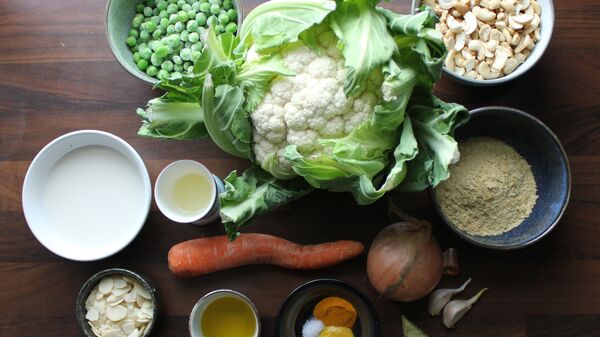Eating plant-based foods and taking probiotic and prebiotic supplements may help to "significantly" ease depression, according to a review of seven separate studies published in the British Medical Journal Nutrition, Prevention and Health. Dr Kathy Martyn, the principal lecturer in nutrition at the University of Brighton, has co-authored a study titled Food & Mood: a review of supplementary prebiotic and probiotic interventions in the treatment of anxiety and depression in adults. Martyn explained to Sputnik that while more research must be done on the subject, the current evidence shows that eating foods and supplements that facilitate the growth of "good bacteria" has been shown to improve peoples' moods.
Sputnik: Why would eating food (which encourages the growth of bacteria) ease depression?
Dr Kathy Martyn: The bacteria in your gut, microbiome, are important for your health and are thought to support your brain in what is called the gut-brain axis, by providing nutrients such as short-chain fatty acids, and other chemicals that help the brain to work.
Sputnik: What exactly is the "gut-brain axis" and how does that relate to the findings of your study?
Dr Kathy Martyn: The gut-brain axis is the term used to describe how what is happening in your gut influences what is happening in your brain.
Sputnik: How certain are you of your conclusion that eating probiotics and prebiotics could meaningfully reduce a person's depression?
Dr Kathy Martyn: At the moment, there is not enough robust, well-designed research to be certain. However, studies have suggested that there might be a link and it is worth exploring further.
Sputnik: Does the difference between probiotics and prebiotics matter, and if so, to what extent?
Dr Kathy Martyn: This has not been studied in-depth, but we know that if you eat a balanced diet, it will contain both pre and probiotics.
Sputnik: Are there foods which you are aware of that may also have similar benefits to probiotics?
Dr Kathy Martyn: Plant-based foods, including cereals and grains, are considered to be good for your microbiome.
Sputnik: Your research shows that eating probiotics and prebiotics may ease depression but not necessarily anxiety. Why would that be the case?
Dr Kathy Martyn: At this stage, we do not know, and further research is needed. It could be not just the food you are eating, but how, when and why you are eating? Our studies focus on the use of supplements, and there was limited information about the daily food intake of the participants.
Sputnik: On the assumption that depression and anxiety are not merely about chemical imbalances but also about real world factors that are internal and external to an individual, to what extent is amending one's diet secondary to that person receiving meaningful outside assistance?
Dr Kathy Martyn: If you are suffering from anxiety or depression, it is important that you continue with any therapies/treatment provided by your health care provider. Food can act alongside these therapies to improve your overall health and to engage in social interactions.
Sputnik: What recommendations would you make as a result of your findings?
Dr Kathy Martyn: Ensure you have a healthy balanced diet, including plenty of plant-based foods. If you want to try pre/probotic supplements, speak with your healthcare provider and registered dietitians or nutritionists. Do not stop any medications or other therapies without discussion with your healthcare provider.




